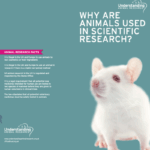Animal cruelty remains a harrowing reality in our society, a widespread issue that affects countless innocent creatures. While various states have instituted laws to address these abhorrent acts, the absence of a unified, overarching federal statute remains a glaring oversight. This article delves into the reasons why animal cruelty should unequivocally be classified as a federal crime, exploring the implications for society, animals, and law enforcement.
Firstly, one of the primary motivations for elevating animal cruelty to federal status is the complexities surrounding its enforcement. Different states apply varying definitions of animal cruelty, resulting in a patchwork of regulations that can lead to inconsistent punishments and a lack of accountability. A federal law would standardize these definitions and penalties, ensuring that offenders do not exploit jurisdictional loopholes to evade justice. Presently, a perpetrator can commit an act of cruelty in one state and face minimal consequences while escaping harsher repercussions in another. Uniformity in legislation would facilitate a more just system that prioritizes the welfare of animals regardless of geographic location.
Moreover, animals are often unable to advocate for themselves. This inherent vulnerability necessitates reinforced protections at a national level. Establishing animal cruelty as a federal crime would signify a societal acknowledgment of the sentience of animals and their intrinsic right to protection from violence and mistreatment. Federally entrenched legal safeguards would elevate public consciousness towards animal welfare, fostering a culture that abhors cruelty in any form.
The ripple effects of animal cruelty extend far beyond the immediate harm done to animals. Research indicates a correlation between violence against animals and violent crimes against humans. History demonstrates that individuals who perpetrate animal abuse often engage in other forms of domestic violence, sexual assault, or even homicides. By classifying animal cruelty as a federal crime, law enforcement agencies would gain invaluable resources and frameworks to address these precursory behaviors, potentially preventing more severe crimes. The interconnectedness of these issues mandates a comprehensive approach that transcends state lines.
Furthermore, a federal law addressing animal cruelty would bolster collaboration among different agencies. Currently, law enforcement tasked with addressing animal abuse may lack the experience or training necessary for effective intervention, which can be particularly pronounced in rural areas with less access to resources. Federal involvement would facilitate enhanced training and education for local authorities, equipping them to recognize and respond to instances of animal cruelty with greater efficacy. This institutional support is paramount in enabling communities to deal with the ramifications of such crimes competently.
In addition to the benefits for law enforcement, federal legislation would provoke a necessary dialogue on the treatment of animals in various sectors. From agriculture to entertainment, the treatment of animals often falls into morally ambiguous territories. Federal laws would invite scrutiny of industries that exploit animals, fostering reforms that prioritize humane treatment. For example, the farm-to-table movement necessitates greater awareness of animal welfare in agricultural operations. By imposing stricter regulations, we not only protect animals but also promote ethical consumption practices among consumers, who are increasingly concerned about the origins of their food.
There is also an emerging recognition of the economic implications of animal cruelty. The repercussions of cruelty extend into the broader societal fabric, affecting public health, insurance rates, and community stability. Research shows that areas with high instances of animal cruelty often experience other forms of societal decay, ranging from increased crime rates to diminished quality of life. By addressing animal cruelty at a federal level, we invest in healthier communities and reduce the resultant economic burden on public resources, thereby promoting overall societal well-being.
The ideological shift towards recognizing animal rights necessitates legislative action. As society evolves, so too should our legal frameworks. Implementing federal penalties for animal cruelty would align with a contemporary understanding of ethical responsibility towards non-human beings, paving the way voor an empathetic society. This shift not only speaks to our moral obligations but also signifies an advancement in our legal paradigms that recognizes the need for more compassionate values in governance.
Lastly, a unified approach serving as a federal crime would empower advocacy groups and the general public, catalyzing grassroots movements aimed at raising awareness. Increased public involvement in defending against animal cruelty could lead to significant social change, fostering a robust community-centered ethos that cares for all living beings. This collective advocacy is essential in transforming not only the legal landscape but also individual perceptions regarding animal welfare.
In conclusion, elevating animal cruelty to the status of a federal crime is not merely a legal necessity; it reflects a profound ethical imperative. The implications of such a law are vast, promising a more humane society where animals are afforded the dignity and protection they deserve. By recognizing the intertwined nature of animal welfare and human safety, we can foster safer communities and a more compassionate world. It is time to unite in the fight against cruelty and advocate for a legal framework that protects the most vulnerable among us: our animals.





